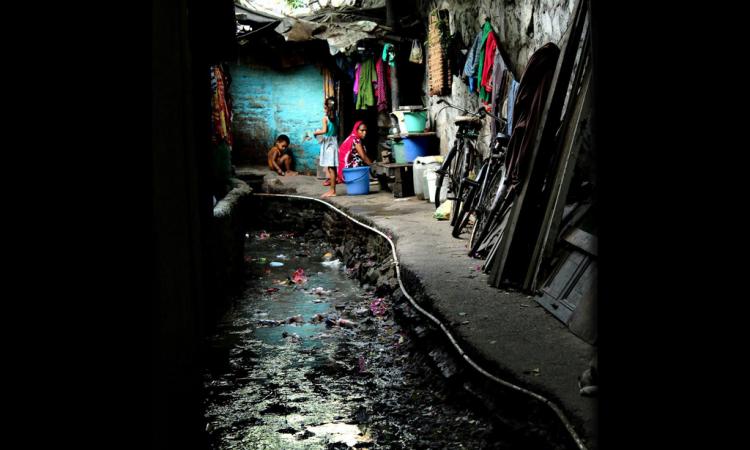
Open defecation and exposed drains compound sanitation crisis in Delhi's unauthorised colonies
Residents of most Delhi neighbourhoods, especially those living in the city’s unauthorised colonies are faced with serious sanitation crises from exposed drains to rampant open defecation. A study conducted by the Delhi government in 2012 revealed that close to 56 percent of children in unauthorised settlements defecate in the open, exposing them to a greater risk of contracting infections and contagious diseases. Intermittent strikes by sanitation staff have severely affected the regular cleaning of the drains which have, over time turned into community health hazards, compounding the crisis further. It has been recorded that while 36.6 percent of households had open drainage systems in the national capital, 4.2 percent households had no drainage at all.
Health and sanitation indicators point south in Telangana and AP
Statistics from the Ministry of Drinking Water and Sanitation (MDWS) reveal that the states of Telangana and Andhra Pradesh have been placed rather low on the nationwide list for health and sanitation. In both states, just 25.8 percent of the households have toilets. One of the biggest obstacles keeping the two states from achieving their sanitation-related goals has been low levels of community participation and ownership in addition to technical snags such as poor construction quality across panchayats. Telangana, however, has been showing promise with at least five districts expected to be declared open defecation free by March this year.
Over 70 percent of anganwadis in Odisha lack toilet facilities
State government data reveals that over 70 percent of Odisha’s 71,302 anganwadi centres lack toilet facilities. Anganwadis have been set up to provide primary healthcare for children in addition to providing supplementary nutrition in rural areas. Despite sanction of funds, construction of anganwadi centres is found to be sluggish throughout the state. Fifty thousand three hundred and sixty eight centres lack toilets even as funds are available under central as well as state schemes for provisioning sanitation facilities in anganwadis. Even when present, most of them have been rendered useless due to lack of running water supply.
States face NGT ire for failing to file action plan on solid waste management rules
The National Green Tribunal (NGT) has directed most states who have failed to file action plan on solid waste management rules to comply with its directions within two weeks. The defaulting states will be slapped with a fine of Rs 50,000, the NGT noted. The direction to file action plans on managing solid waste within four weeks was given on December 22, 2016. A complete ban on burning of waste in open places was also imposed then. All states are required to detail out the manner in which solid waste would be processed in addition to listing out details of the total amount of sewage generated and the amount treated within the state.
Aurangabad MC's experiment to tag garbage trucks with GPS devices pays rich dividends
Officials of the Aurangabad municipal corporation are pleased with their latest experiment of tagging garbage trucks with GPS devices as the trucks have been found to reach the dumping sites on time and dispose of garbage as per schedule. The corporation engages 10 trucks, 17 tippers and 18 tractors, some of which are operated by private agencies against whom complaints of manipulating the system were earlier registered. The plan to incorporate modern technology in managing solid waste is in line with the corporation’s smart city scheme through which area-wise garbage collection and handling is expected to be monitored.
This is a roundup of important sanitation-related news published between February 4 and 10, 2016.
Image courtesy: Youth ki Awaaz
/articles/delhis-unauthorised-colonies-face-sanitation-crises